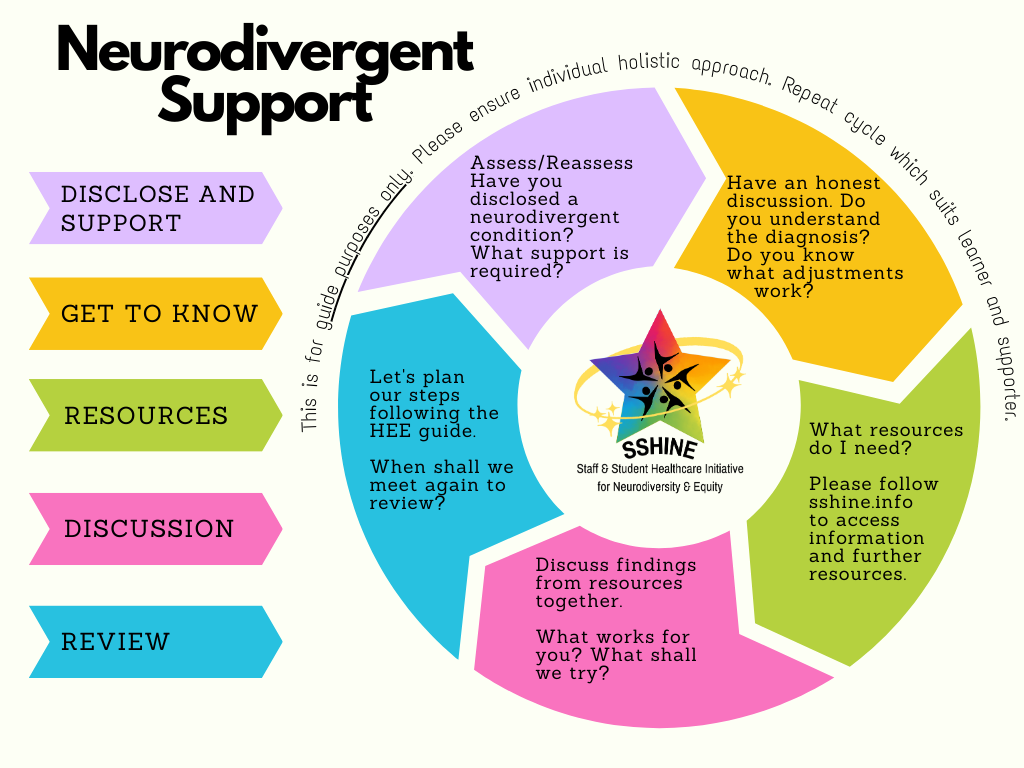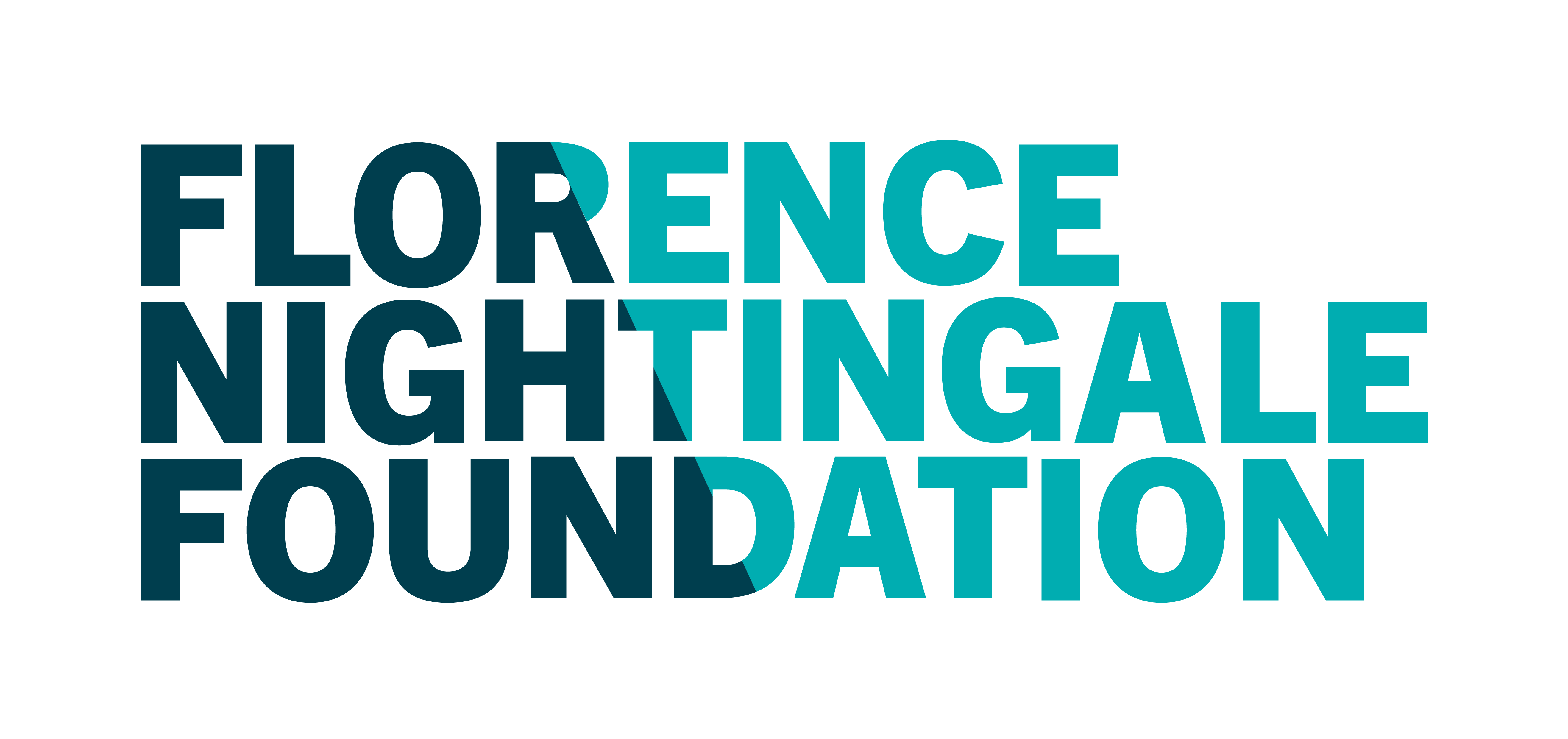ND1.4 – Support and Reasonable Adjustments
Section 4 looks at the importance of supervision and continued support. Working and Iearning environments are dynamic and can change over time. Required support may change over time to suit different needs. It is vital to acknowledge support as a continuous process to be managed and reviewed with a holistic approach.
Your healthcare profession’s governing body will have practice educator guidelines and policies regarding Diversity, Equity and Belonging, and your Trust may have EDI networks and champions that can help provide further information.
Section Four Learning Objectives
- Understand why continued support matters
- Prevent miscommunication
- Promote professional relationships
- Create supportive environments
- Identify and overcome barriers
This video is a 3-minute clip that shares some of the reasons to influence better working environments and professional relationships touching on evidence within nursing workforce standards.
Reasonable adjustments
Let’s explore the importance of reasonable adjustments and why they matter.
To support reasonable adjustments, SSHINE created a toolkit, published by Health Education England. Emily explains how the guide breaks down reasonable adjustment ideas within neurodivergent conditions, exploring adjustments based on the challenge.
Adjustments should not be based on diagnosis and should be needs based.
SSHINE Education Support Cycle
SSHINE created a cycle to support both educator and learner.

Guidance for support cycle
This support cycle is for guidance only. Please review your policies in addition to this tool. This tool was created to simplify the key steps, whilst planning and reviewing support, and is aimed at individuals who are responsible for implementing support on behalf of an individual.
Disclose and support
This step can be a scary moment for an individual for several reasons. To highlight some, an individual may have had a previous negative experience, they may not be aware they have a neurodivergent condition, and they may not be aware of what support is available. Please use a compassionate and holistic approach.
Get to know
This step is centred on getting to know one another. What in particular are the main worries and concerns? Is there a previous history of what worked well and what did not work so well? What does the individual feel they may need in terms of support, do they know? What support can you offer?
Resources
What does your governing body suggest? Does your organisation have their resources and policies? This step is a chance for you to explore together and share resources you may already be aware of. Health Education England (HEE) supported SSHINE in creating a resource that provides tips and tricks for managing a variety of difficulties one may encounter. This can be found in the further resources below.
Discussion
Bring this information together to make a plan moving forward. Are your findings similar? Have you previously tried something that has not worked? Use this section to plan your steps going forward and how much time you are allocating before a review is needed. Remember, the plan you make can be adjusted at any time.
Review
It is time to review our plan. Are both parties happy with the plan? Do both parties understand the plan? When shall we meet again to review? – How are things going? Have you tried something new and found that it does not work for you, that is OK. Did you use the HEE guide? Are the tips and tricks working or would you like to try something new? What else do you think we can do to support you? The design of the guidance is in a cycle to recognise that one glove does not fit all.
Section Four Recap
Firstly, one glove does not fit all. It is vital that discussions for support needs and adjustments take place in a timely manner and are reviewed regularly. Such discussions should be area specific, person specific and role specific. Check your organisations governing body for policies and procedures, including Equality, Diversity Inclusion (EDI) networks. Disclosure is very personal to an individual and an individual may not choose to disclose right away, for various reasons. There are many guides available to help support disclosure and promote reasonable adjustments. Reasonable adjustments can support an individual to perform to the best of their abilities, promoting workforce culture and safe environments.
Resources
https://sshinestudents.wordpress.com/resources/
NHSE Neurodiversity Toolkit
https://learninghub.nhs.uk/Resource/35301/Item
https://www.england.nhs.uk/long-read/safe-learning-environment-charter/
Royal College of Nursing, Workforce Standards
https://www.rcn.org.uk/professional-development/publications/rcn-workforce-standards-uk-pub-009681ursing
Supporting neurodivergent nursing students in their practice placements
https://journals.rcni.com/nursing-standard/cpd/supporting-neurodivergent-nursing-students-in-their-practice-placements-ns.2024.e12262/abs

Useful resources, breaking solutions to neurodivergent makes it easier to know.